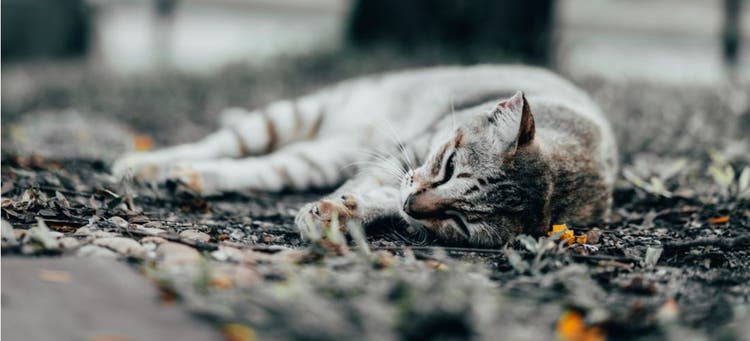
Is Your Cat Depressed?
Though dogs are probably more active and energetic on average, cats are often much more outgoing than their reputation would suggest. Occasionally, however, cat owners notice that they’re pets aren’t quite themselves. Formerly affectionate kitties are suddenly sullen, quiet cats without an interest in their favorite toys, foods, and activities. These behaviors could be signs of feline depression, potentially warranting a vet’s attention.
Signs Your Cat Is Depressed
Cats don’t always make it easy to tell how they’re feeling. Pet parents should watch out for signs like these and keep in mind that they may be subtle and tough to spot.
- Appetite changes: If a voracious cat suddenly can’t work up an appetite, depression could be to blame.
- Clinginess or avoidance: Some cats stick to their pet parents like glue, while others are more independent, favoring a solitary daily life. Depression may inspire clingy cats to grow more avoidant or vice versa.
- Fatigue or restlessness: Your average cat gets a whole lot of sleep. Feline fanciers can expect their pets to doze anywhere from 15 to 20 hours every day. However, there’s such a thing as too much sleep. A cat who’s catching too many Zs could be suffering from feelings of sadness or depression. Watch out for sleeplessness too. It’s often just as much a warning sign as fatigue.
- Poor or excessive grooming: Cats who are dealing with depression may suddenly change their grooming habits. Call the vet if your formerly fastidious kitty stops grooming. For anxious and depressed cats, it’s also possible that grooming may become excessive. In extreme cases, it can lead to hair loss and discomfort if not addressed by a veterinarian. Worried about costs related to vet visits and exams? Pet insurance may be able to help. Click here to learn more.
- Disinterest in favorite toys and activities: Feline depression often manifests itself in anhedonia, a lack of interest in things that once brought pleasure. Your cat’s sudden dismissal of favorite toys, games, and treats could be a warning sign.
Your Cat’s Body Language: Signs of Sadness and Stress
Behavioral changes aren’t the only way cats tell owners they’re depressed. Subtle changes to your cat’s body language could reveal underlying depression, anxiety, and stress.
- Cats may crouch close to the ground when moving.
- A depressed or anxious cat may flick their tail nervously or keep it tucked close to their body.
- When they’re feeling anxious or sad, cats may widen their eyes.
- An anxious, depressed, or stressed cat’s ears may appear especially erect or face outward.
Why Do Cats Get Depressed?
There are a number of reasons your cat may suddenly experience short or long-term bouts of depression.
- Illness or injuries: As mentioned above, depression often coincides with other mental and physical conditions. Sudden behavioral changes should always raise concern because underlying causes can range from infections to cancer.
- Changes to daily life and routines: Cats can become attached to their typical routines and ways of life. Major changes like the arrival of new cats, dogs, or babies can upset them and lead to depression symptoms.
- Grief: The loss of a family member can affect cats too. Don’t be surprised if someone moving out or passing away results in temporary depression for your cat.
Caring for a Depressed Cat at Home
If you notice behavioral changes in your cat, your first step should always involve consulting your vet. That way, you can quickly rule out other serious underlying ailments that could be affecting your cat’s behavior.
At home, these extra pet care steps could be just what your depressed feline needs to feel better:
- Provide more mental stimulation in the form of playtime or engaging new toys.
- Offer up some extra affection to show your cat how much you care.
- Try addressing a lack of appetite by adding extra broth to your cat’s meals. Just make sure to clear any dietary changes with your vet ahead of time.